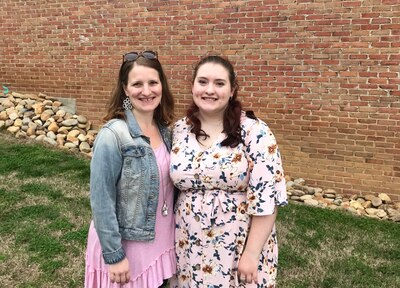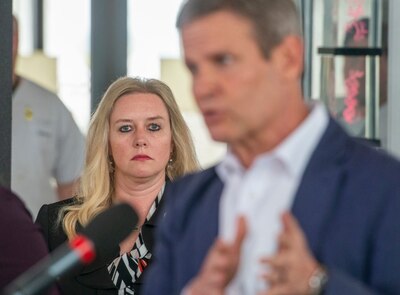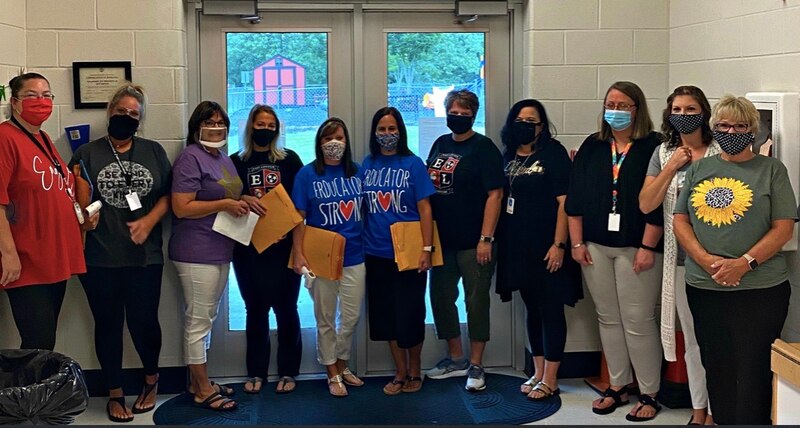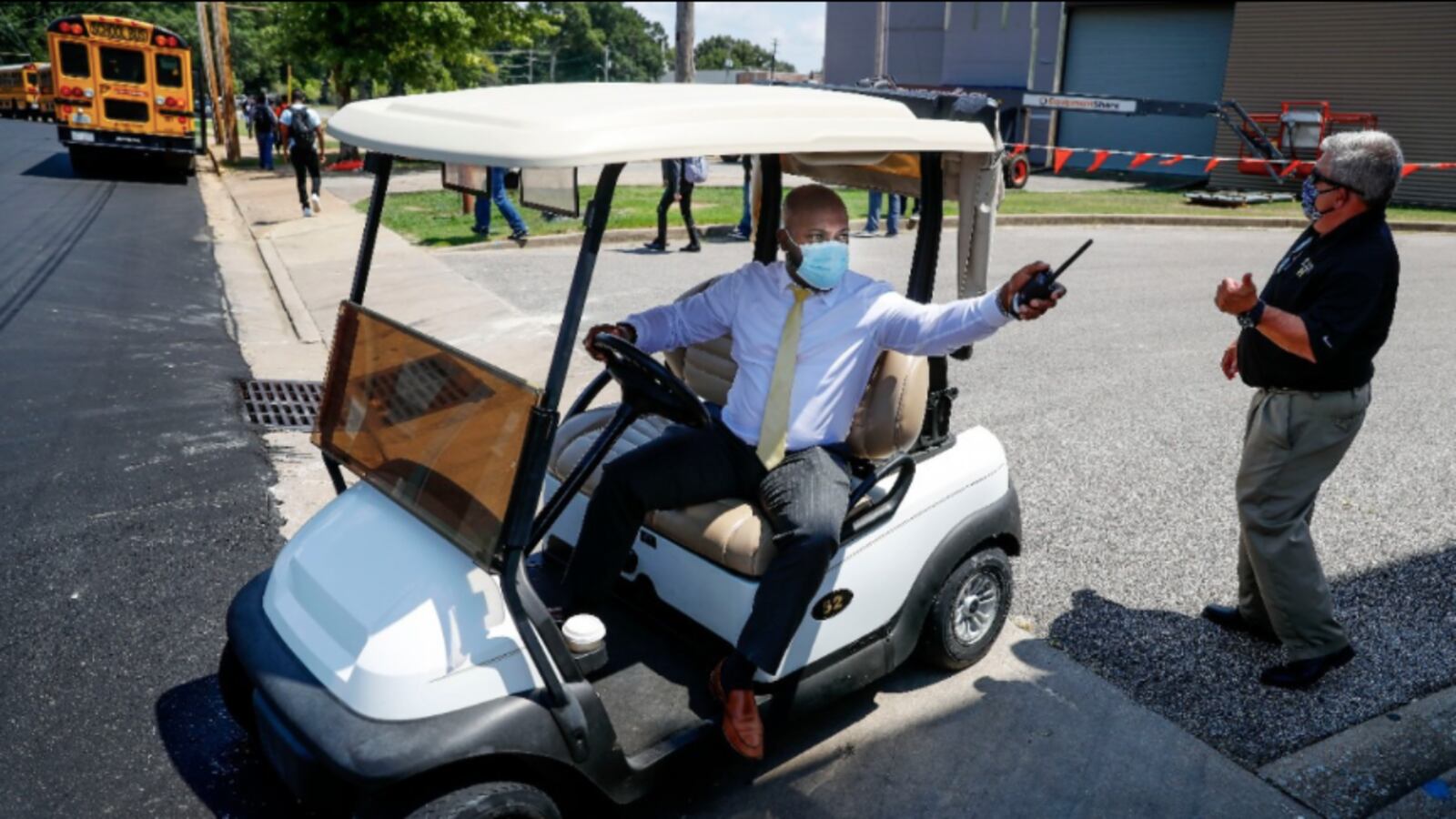Gwen Mulholland agrees with Tennessee Gov. Bill Lee that parents should make informed decisions about whether to return their children to school buildings this year because of the health risks associated with COVID-19. But she’s perplexed about how to do that since Lee’s administration is withholding school-level data about virus spread.
Her daughter’s Knox County school, which begins in-person learning on Monday, also does not plan to notify parents when positive cases emerge on campus, unless their child is believed to have come in close contact with an infected person.

Both the state and district policies aim to protect privacy under federal laws that require shielding sensitive patient health information, as well as student records. But that’s not good enough for Mulholland, who says every member of her household has an underlying medical condition, putting them at higher risk of severe illness or death if they contract the coronavirus.
“I think it’s irresponsible,” she says of the reporting policies. “It feels secretive. I need more information.”
Early spotlight
When some of its districts started classes in late July, Tennessee became one of the nation’s first states to begin a brick-and-mortar schools reopening. Now, with 90% of schools back in session and most providing in-person instruction, the state offers an early glimpse at the challenges of bringing students and staff back into classrooms while the virus spread remains high.
In the last 14 days, more than 2,100 school-age children have tested positive for the coronavirus, according to data released this week by the state health department. The cases already have caused some schools to close their doors temporarily, while others have isolated the shutdowns to classrooms. The governor says in-person instruction is best and wants campuses to stay open to avoid schoolwide disruptions to learning. Parents and educators, meanwhile, are seeking assurances that the health and safety of students and staff are paramount.
Some early questions and disputes have emerged: What level of data about COVID-19 cases should the state share with the public without breaking privacy laws? When and how should school districts communicate isolated cases or outbreaks to parents and communities as schools try to stay open and safe? And how can schools remain properly staffed when teachers who are infected by or exposed to the virus must isolate or quarantine for weeks at a time?
“It is the balance, and it’s the struggle,” Lee said Thursday of the first question about how much data should be released.
He cites HIPAA, the federal privacy law that applies to medical providers releasing identifying information, and FERPA, also known as the Education Rights and Privacy Act, which protects the privacy of students’ education records.
Guidance released by the U.S. Department of Education in March says FERPA does not bar schools from releasing details about coronavirus cases, as long as they do not identify specific students. But Dr. Lisa Piercey, Tennessee’s health commissioner, says shielding identities is harder than it sounds when publishing school-by-school information. Also, in smaller schools and communities, word can get around about who was the source.

Lee’s administration has reversed course three times on what level of data families can expect from the state. This week, after releasing a first round of information about COVID-19 cases among children, the governor said he wants to share more details linked to schools, which the health department is already tracking. His administration is consulting with the state attorney general and federal agencies about how to do that legally.
Tensions between student privacy and public health transparency are also rising at the local level. Without clear and early direction from the state, Tennessee’s 147 districts developed their own reporting policies for informing communities when cases are confirmed. But some school leaders are releasing more information than others, creating a potentially bewildering hodgepodge of messaging.
“When you see one district reporting COVID cases one way and the district next door doing it another way, it’s confusing for people,” said Dale Lynch, who heads the state superintendents organization.
‘It will be about staffing’
Tennessee has not released case data about teachers and staff, but districts are already struggling with how to keep their classrooms staffed during the pandemic.
State guidance says those who test positive must isolate for at least 10 days, while those who come in close contact with a person who tests positive should quarantine at home for 14 days. During the course of an academic year, school employees could end up isolating or quarantining multiple times, burning up sick days and raising questions and anxiety over whether they’ll get paid if forced to miss school.
“In a state that already has a shortage of educators, it’s quite alarming,” said Beth Brown, president of the Tennessee Education Association, the state’s largest teacher organization. In Memphis, for instance, Shelby County Schools is trying to fill 100 vacancies as the state’s largest district prepares to start all classes online on Aug. 31.

Adding to the problem, substitute teachers who were in high demand before the pandemic are less inclined to go into classrooms now.
“Who can blame people?” asked JC Bowman, executive director of the Professional Educators of Tennessee. “For $70 or even $100 a day to substitute teach, it’s just not worth the risk.”
Some Tennessee school districts are trying to address the shortages by designating teachers as essential workers under federal guidelines. The designation as “critical infrastructure workers” — like with doctors and law enforcement — skirts state and federal health guidance to allow employees who were potentially exposed to still report to work, as long as they haven’t tested positive and are symptom-free.
Lee has said that’s a local decision he won’t oppose, although Piercey and Education Commissioner Penny Schwinn say the critical worker designation is not endorsed by the state. They urge a more cautious approach that sidelines exposed workers temporarily. But district leaders argue they need more latitude to keep school buildings operating, as the governor has urged them to do.
“You can open a school building all day long,” observes Bowman, “but without healthy educators to staff them, they’re just school buildings.” He thinks the state should step in to offer hazard pay, since it’s looking to schools to manage yet another societal problem they didn’t create.
The staffing issue is being closely watched by school superintendents like William “Freddy” Curtis. His district in rural Cannon County hasn’t sought the designation, but circumstances could change that.
“There’s a real sense among superintendents that schools aren’t necessarily going to get shut down because students get infected. It will be about staffing,” Curtis said.
Located between Nashville and Chattanooga, Cannon County Schools has only one confirmed case and five exposures among 311 staff members. Out of 1,800 students, five have tested positive and another 12 may have been exposed.
For now, Curtis is following state and federal guidelines to a T, and he’s trying to communicate frequently with parents and local media outlets about district protocols and new developments.
“Trust is essential here,” he said, “and it’s much tougher to regain trust once it’s lost.”
That’s the case with Mulholland, the East Tennessee parent who’s frustrated with the level of transparency she’s seen so far. She also is concerned about school building cleaning protocols. Her 16-year-old daughter, Jayme, will attend online classes this semester under an alternative offered by Knox County Schools, one of the last districts to reopen in Tennessee.
“If we can’t feel semi-safe about her going to school,” says Mulholland, “virtual is the only other option.”

